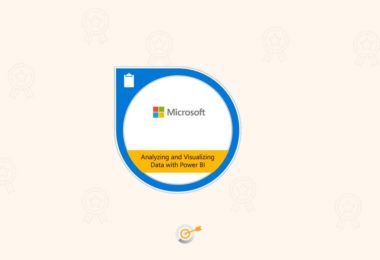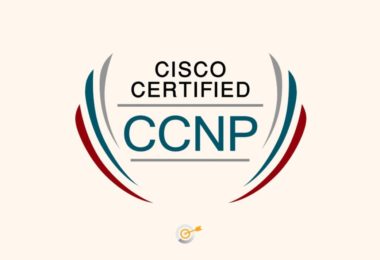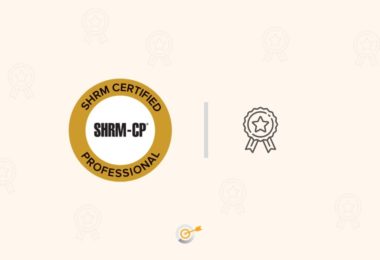
Overview of the Certification
Amazon’s machine learning curriculum is the same one that they use to train their developers and data scientists. Amazon has more than 65 different training courses that offer course hours, hands-on experience, lab work, documentation, and other resources that were originally meant for internal use. All resources are provided by AWS only, including practice exams, study guides, important questions, FAQs and white papers.
Who is This Certification Useful For?
Amazon doesn’t put any eligibility criteria. However, most certifications that AWS offers are specialty certifications, which means people need to delve deep to study them. That reason discounts most people who don’t have a rich experience dealing with some aspect of machine learning or artificial intelligence. This certification is mainly useful for
- Developers
- Data Scientists
- Data Platform Engineers
- Business Decision Makers
The field is not restricted to these professionals. The reason that only these professionals are mentioned is because they have key stake in using and applying machine learning, artificial intelligence, and deep learning for obtaining key business insights, and contribute value to business processes. This AWS certification validates professionals’ experience building, training, tuning, and deploying machine learning models and algorithms on AWS Cloud.
Recommended Articles ;
A Guide for Getting AWS Developer ; Associate Certification
A Step by Step Guide on How to Get AWS SysOps – Associate Certification
Step by Step Guide on How to Get AWS Certified Cloud Practitioner Certification
Learning Paths in AWS Machine Learning Certifications
AWS offers several learning paths for machine learning. They are
Business Decision Maker
This path is designed for business individuals and team leaders interested in leveraging machine learning (ML), artificial intelligence (AI), and deep learning (DI) to identify growth strategies for their organization. This will help them learn how these innovations will deliver business value as part of a larger digital transformation underway in your business.
Data Platform Engineer
This path is designed for data platform engineers. This will help them how machine learning (ML) will change data ingestion, system requirements and performance, and customer experiences. The path for this is
ML Building Blocks: Services and Terminology
These two courses clarify both the machine learning stack and the terms and processes that will help you build a good foundation in machine learning.
Process Model: CRISP-DM on the AWS Stack
Walk through the CRISP-DM methodology and framework and then apply the model’s six phases to your daily work.
Data Analytics Fundamentals
In this self-paced course, you will learn about the process for planning data analysis solutions and the various data analytic processes that are involved. This course takes you through five key factors that indicate the need for specific AWS services in collecting, processing, analyzing, and presenting your data.
Machine Learning Data Readiness
This course focuses on the concept of data readiness in the context of machine learning (ML). You will learn how to determine data readiness and identify when to employ data readiness as part of your ML process.
Storage Deep Dives
These courses are designed for enterprise storage engineers to learn how to architect and manage highly available solutions, with a focus on AWS storage services.
Machine Learning Security
Secure your applications and environments with specific topics detailing NACLs, security groups, AWS identity and access management, and encryption key management.
Big Data on AWS
This course introduces you to cloud-based big data solutions such as Amazon Elastic MapReduce (EMR), Amazon Redshift, Amazon Kinesis, and the rest of the AWS big data platform.
Data Scientist
This path is designed for learners skilled in math, statistics, and analysis who want to become machine learning (ML) subject matter experts within their organization. You can learn how machine learning frameworks and analysis tools can improve workplace collaboration.
The Elements of Data Science
Learn to build and continuously improve machine learning models by covering problem formulation, exploratory data analysis, feature engineering, model training, tuning and debugging, as well as model evaluation and productionizing.
Data Science Capstone: Real World Machine Learning Decisions
Use machine learning to solve a real-life business challenge. Build, train, and test a machine learning model from the ground up.
Machine Learning Data Readiness
This course focuses on the concept of data readiness in the context of machine learning (ML). You will learn how to determine data readiness and identify when to employ data readiness as part of your ML process.
Developer
This path is designed for builders and software developers. You will learn how machine learning (ML) and artificial intelligence (AI) can help you better partner with data scientists to innovate with ML technologies
[ Also Check: AWS Certified Cloud Practitioner Certification ]
AWS Certified Machine Learning Specialty
The AWS Certified Machine Learning – Specialty certification(1) is intended for individuals who perform a development or data science role. It validates a candidate’s ability to design, implement, deploy, and maintain machine learning (ML) solutions for given business problems.
The abilities that this certification validates are
- Select and justify the appropriate ML approach for a given business problem
- Identify appropriate AWS services to implement ML solutions
- Design and implement scalable, cost-optimized, reliable, and secure ML solutions
There are no separate eligibility criteria for this certification. However, given the depth that is involved in this, Amazon recommends the following eligibility criteria
- 1-2 years of experience developing, architecting, or running ML/deep learning workloads on the AWS Cloud
- The ability to express the intuition behind basic ML algorithms
- Experience performing basic hyperparameter optimization
- Experience with ML and deep learning frameworks
- The ability to follow model-training best practices
- The ability to follow deployment and operational best practices.
Individuals will have 170 minutes to complete the exam and the certification costs 300 USD while the practice exam costs 40 USD. It has 65 questions that are scenario-based and test the ability to use machine learning in real life. The average salary for these professionals ranges between $130000 and $165000. The average salary is $142000.




